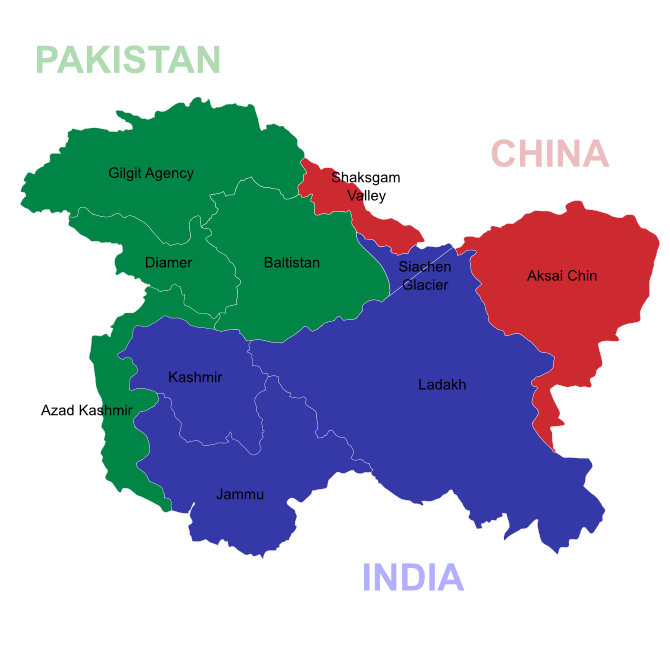NEW DELHI: In a significant attempt to defuse escalating tensions along the border, both New Delhi and Beijing have agreed to “peacefully resolve” the dispute between the world’s two most populous nations, India’s Foreign Ministry said in a statement released on Sunday.
“Both sides agreed to peacefully resolve the situation in the border areas in accordance with various bilateral agreements,” excerpts from the statement said.
The agreement comes a day after military officials from the two nations held high-level talks near the eastern part of the Himalayan region of Ladakh. This disputed border area was the center of the current escalation between the two neighbors.
The talks on Saturday, at the behest of India, were held at the Border Personnel Meeting Point in Maldo on the Chinese side of the Line of Actual Control (LAC) in Eastern Ladakh.
“This year marked the 70th anniversary of the establishment of diplomatic relations between the two countries, and both sides agreed that an early resolution would contribute to the further development of that relationship,” Indian officials said.
The issue began early last month when Indian troops blamed China’s military for hindering usual patrolling at the LAC, along the Ladakh and Sikkim border.
Beijing blamed its southern neighbor for building road infrastructure at the Fingers region around the Pangong Tso Lake and Galwan Valley in eastern Ladakh.

Map showing the volatile borders of China, India and Pakistan. (Shutterstock image)
The present standoff, which began with border skirmishes, is confined to those five key areas where India and China have had traditional differences on the perception of the LAC in the Ladakh region.
Both sides adopted a firm approach and, according to media reports, China deployed nearly 2,500 extra troops in the region, in addition to enhancing its weaponry and military infrastructure.
On Tuesday, India’s Minister of Defense Rajnath Singh hinted at the build-up of Indian troops in the disputed area, too.
“It is true that people of China are on the border. They claim that it is their territory. We claim that it is ours. There has been a disagreement over it. A sizeable number of Chinese people have come there. India has done what it needed to do,” Singh said in a media interaction on Tuesday.
However, on Sunday, India said that the “two sides would continue military and diplomatic engagements to resolve the situation and to ensure peace and tranquility in the border areas.”
Foreign policy experts, for their part, said that the de-escalation and resolution of disputes were “important to maintain a good bilateral relationship.”
“If we don’t address the contentious issue it will spill over and impact other bilateral and multilateral relationships,” Professor Srikanth Kondapalli of the New Delhi-based Jawaharlal University told Arab News.
He reasoned that the stand-off in Ladakh is related to the “conflicting claims on sovereignty and each country’s distinct strategic vision.”
“If China occupies the region, it can connect to Pakistan, Afghanistan, and Central Asia and influence the future setup in Ladakh and Jammu and Kashmir,” he said, adding that “Ladakh holds geostrategic importance for India” also.
“This region is the highest region on earth, and those who control the peak control the valley. That is another strategic reason for the dispute.”
Manoj Kewalramani, a fellow at the Bangalore-based think-tank Takshashila Institution, added that Saturday’s agreement does not mean a “de-escalation or disengagement anytime soon” or the cessation of dispute.
“The nature of the boundary dispute, the ambiguity surrounding claims and the strategic dynamic of the India-China relationship imply that we should continue to expect incidents and volatility,” Kewalramani told Arab News.
He added that what was necessary at this juncture was for both sides “to recognize this.”
“They have been working on mechanisms of engagement to maintain stability. The current situation has tactical and strategic components to it. The tactical component is related to infrastructure development and force posturing. The strategic component is related to geopolitical shifts amid the pandemic, which entail worsening Sino-US ties and Beijing’s desire to shore up its periphery,” he said.
Other experts believe China escalated tensions along the border for other reasons.
“We have to understand the timing of the incident. The border infrastructure has been going on for some time. Judging by the way China reacted this time, it was clear that they wanted to divert the attention away from the mess of the pandemic, their stand on Hong Kong sovereignty and their military posturing in the South China Sea,” Jagannath P. Panda of the Institute of Defense Studies and Analysis, a New Delhi-based think tank, told Arab News.
“The Chinese wanted to send a message to the whole world that they are a competent power and can handle multiple issues at one go,” he added.



























